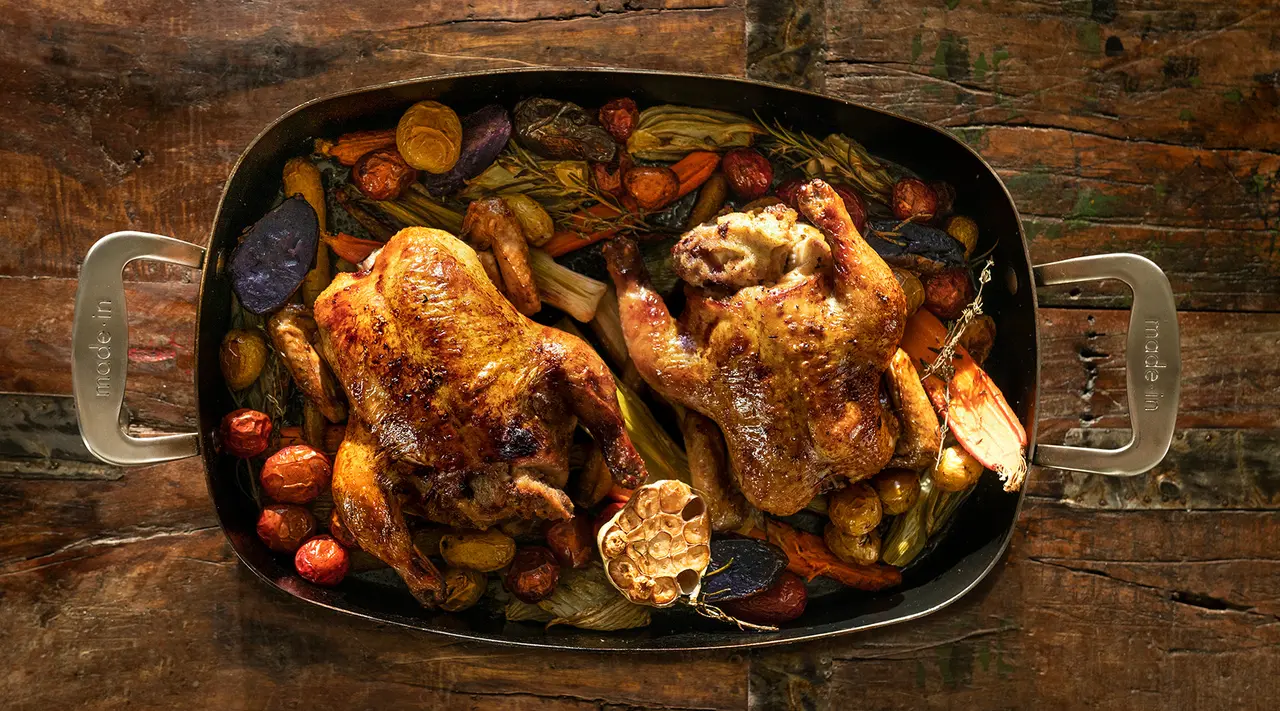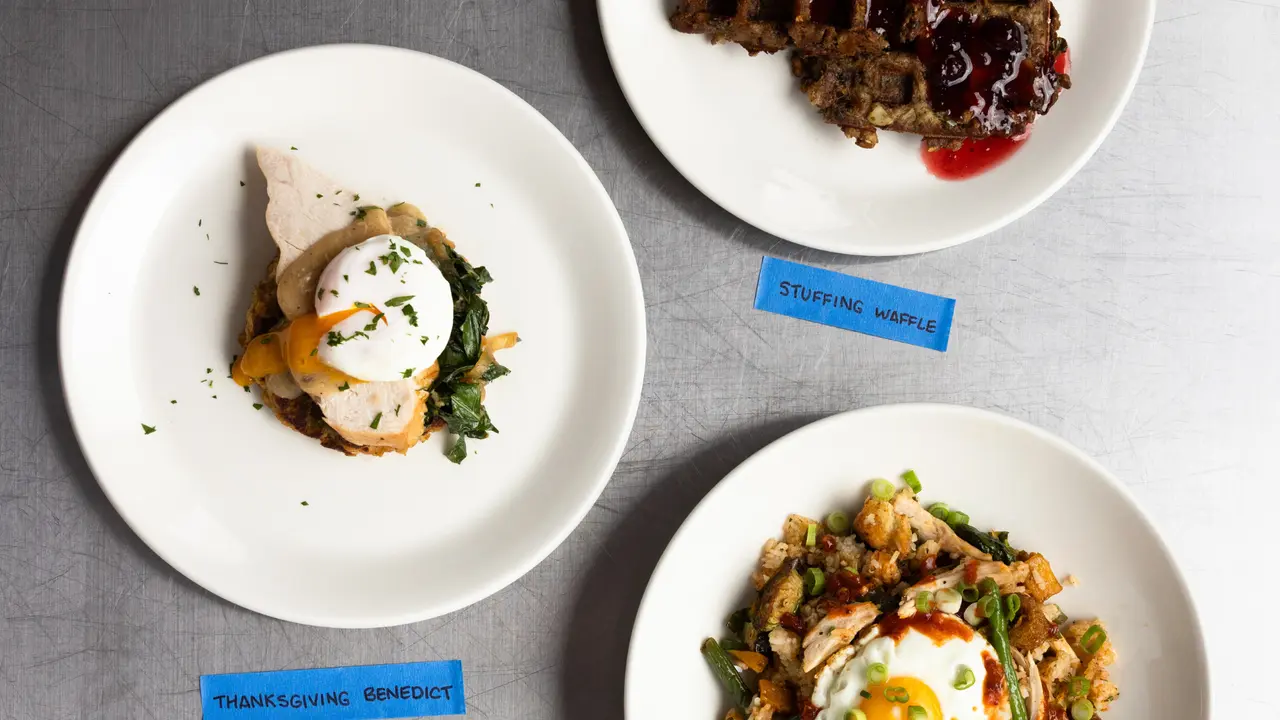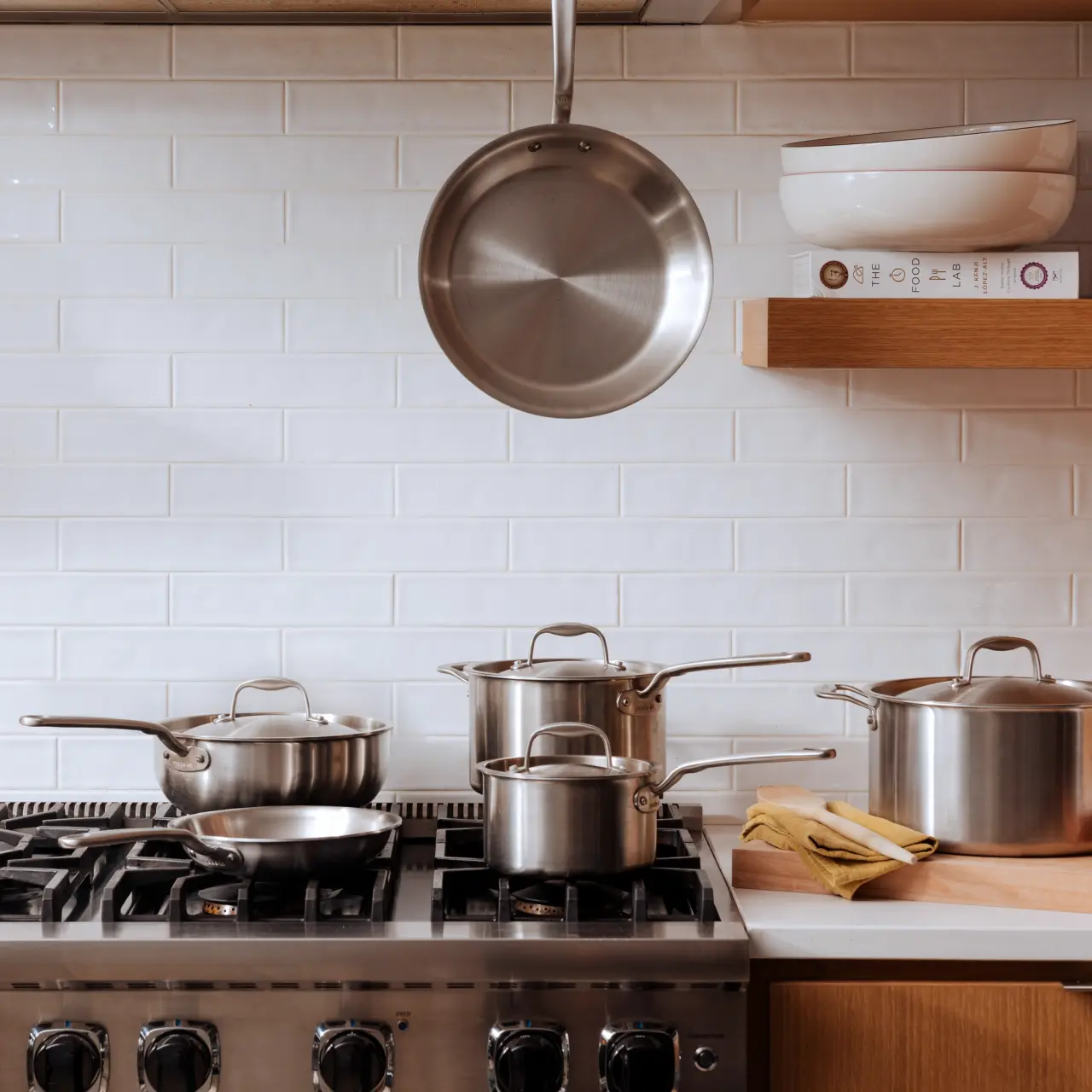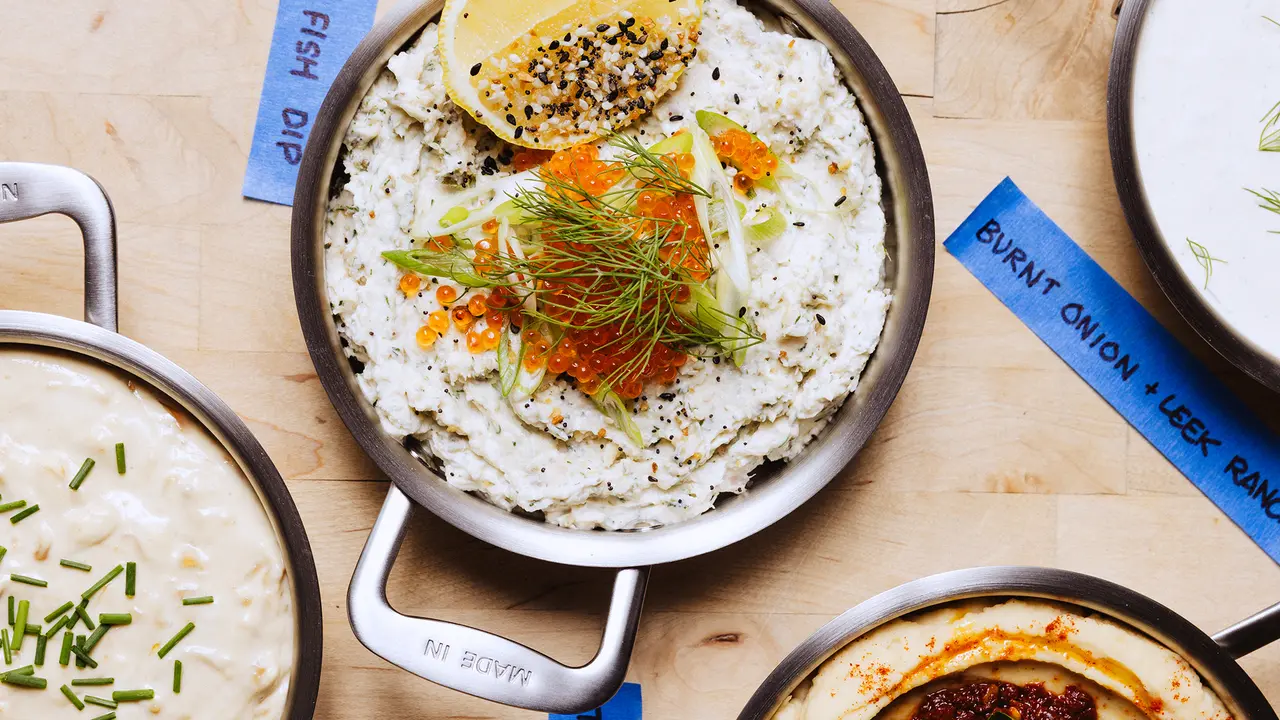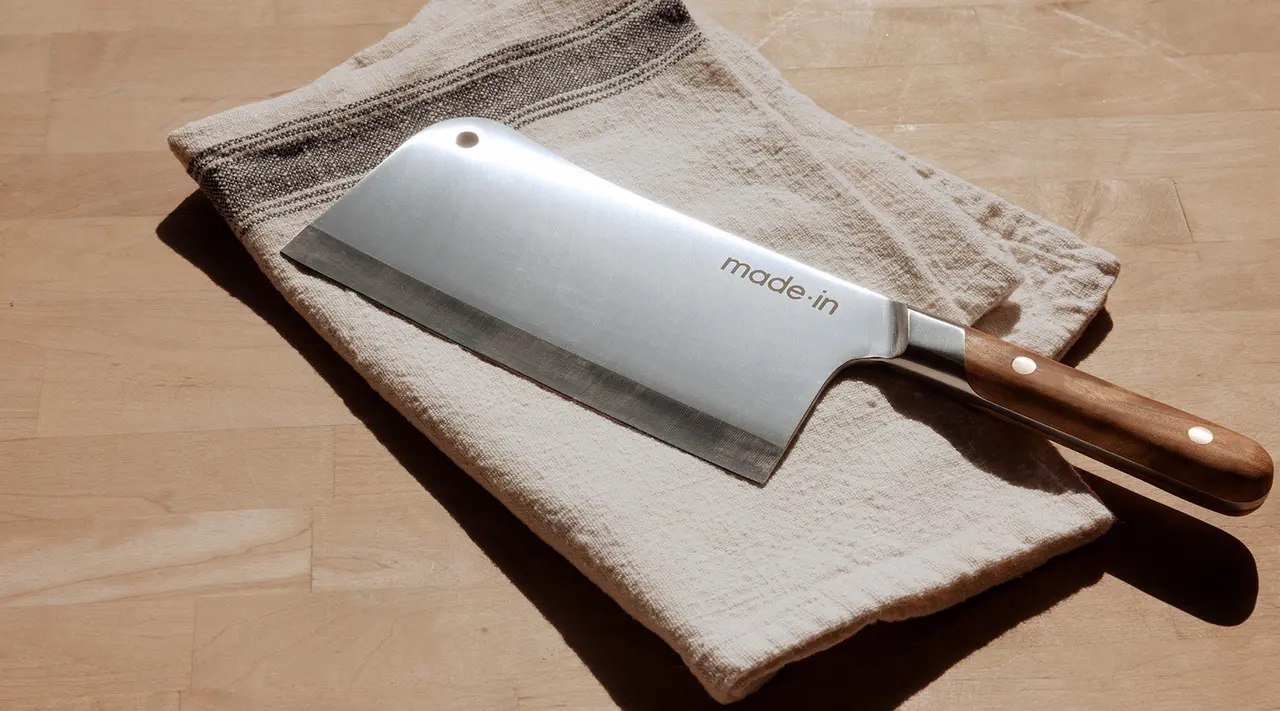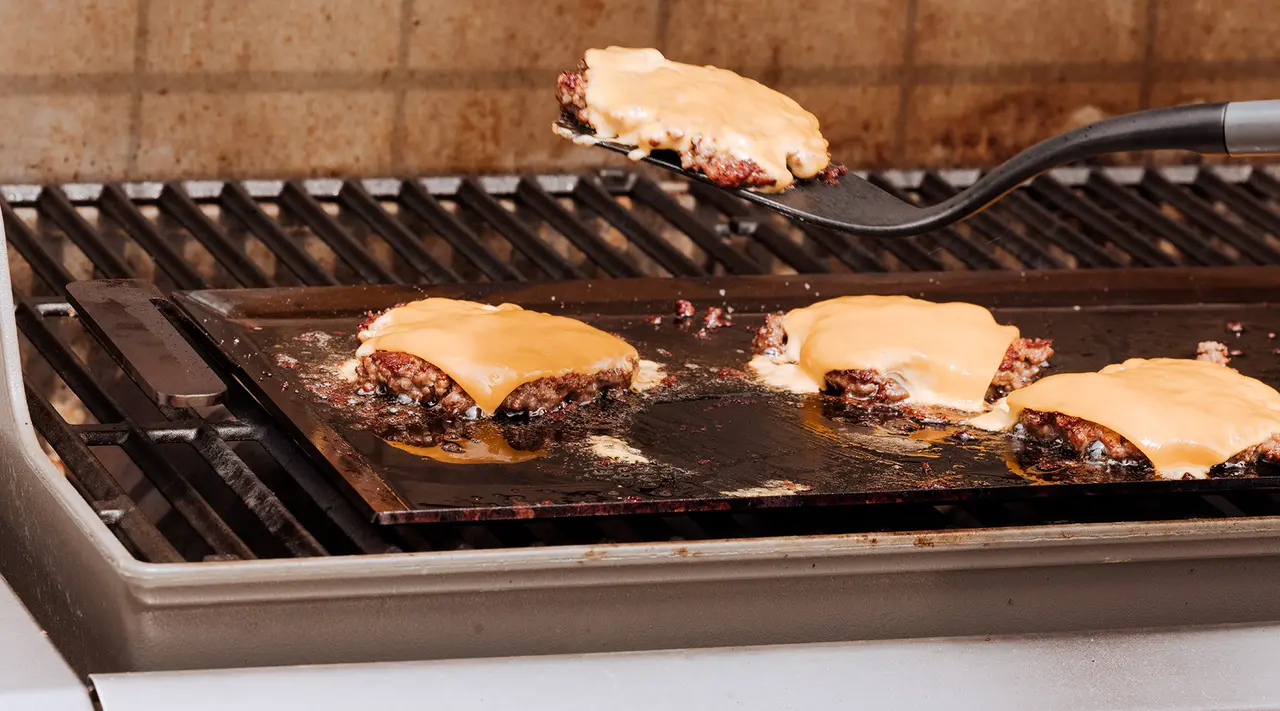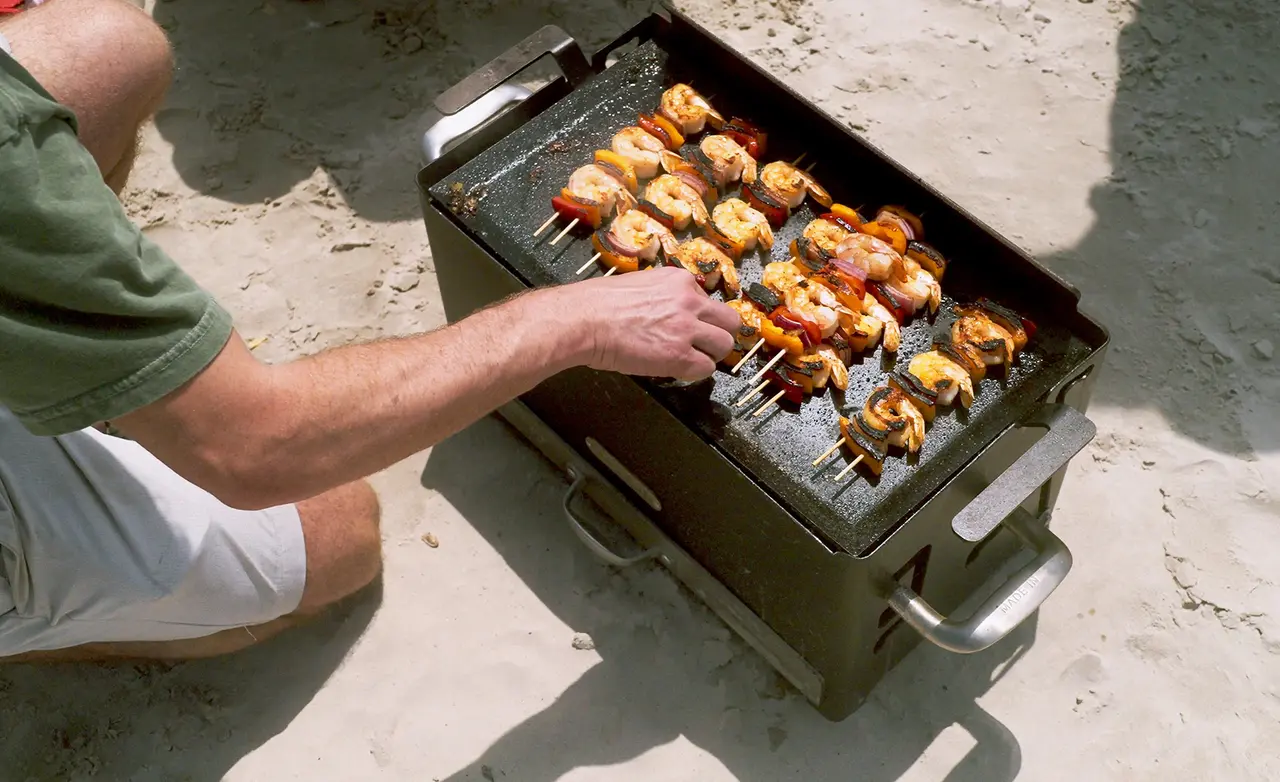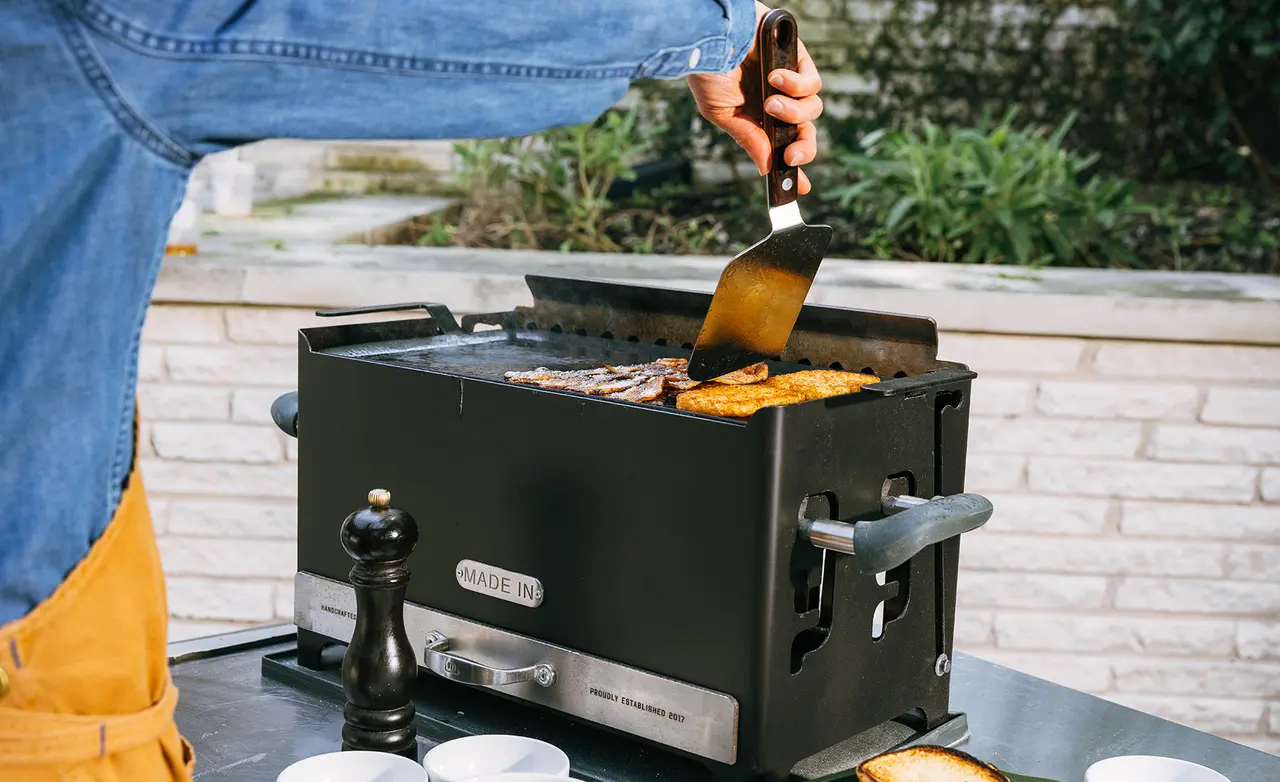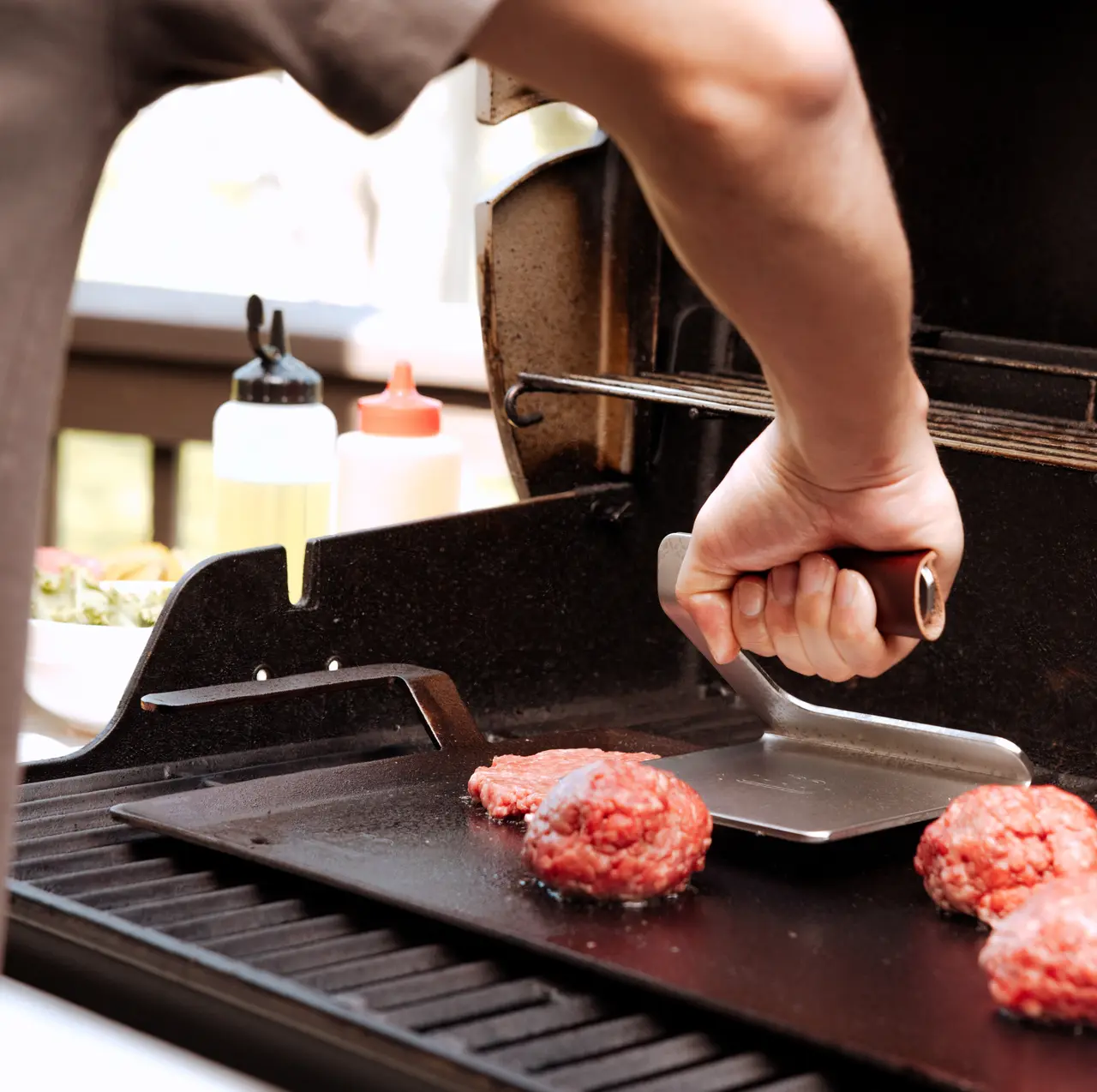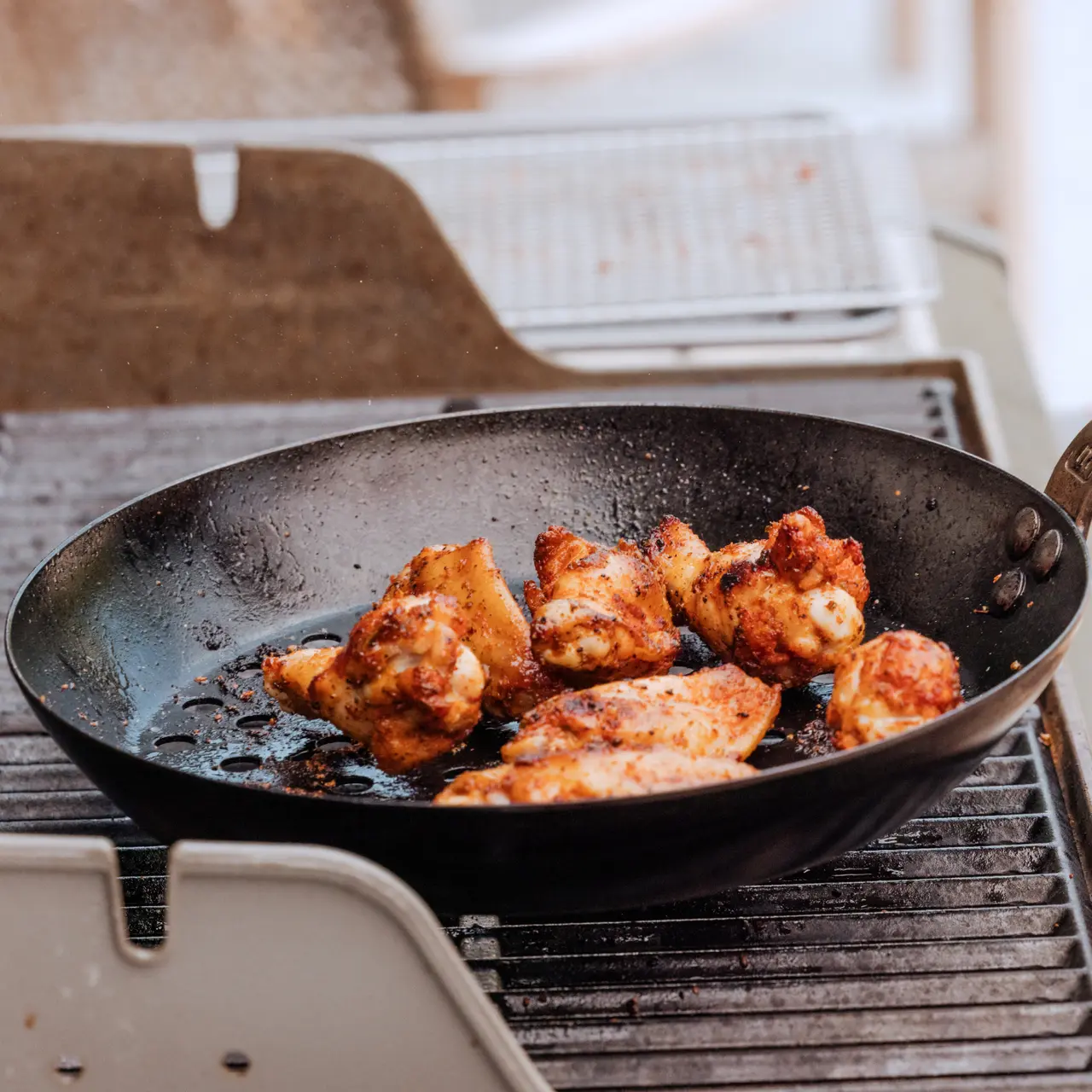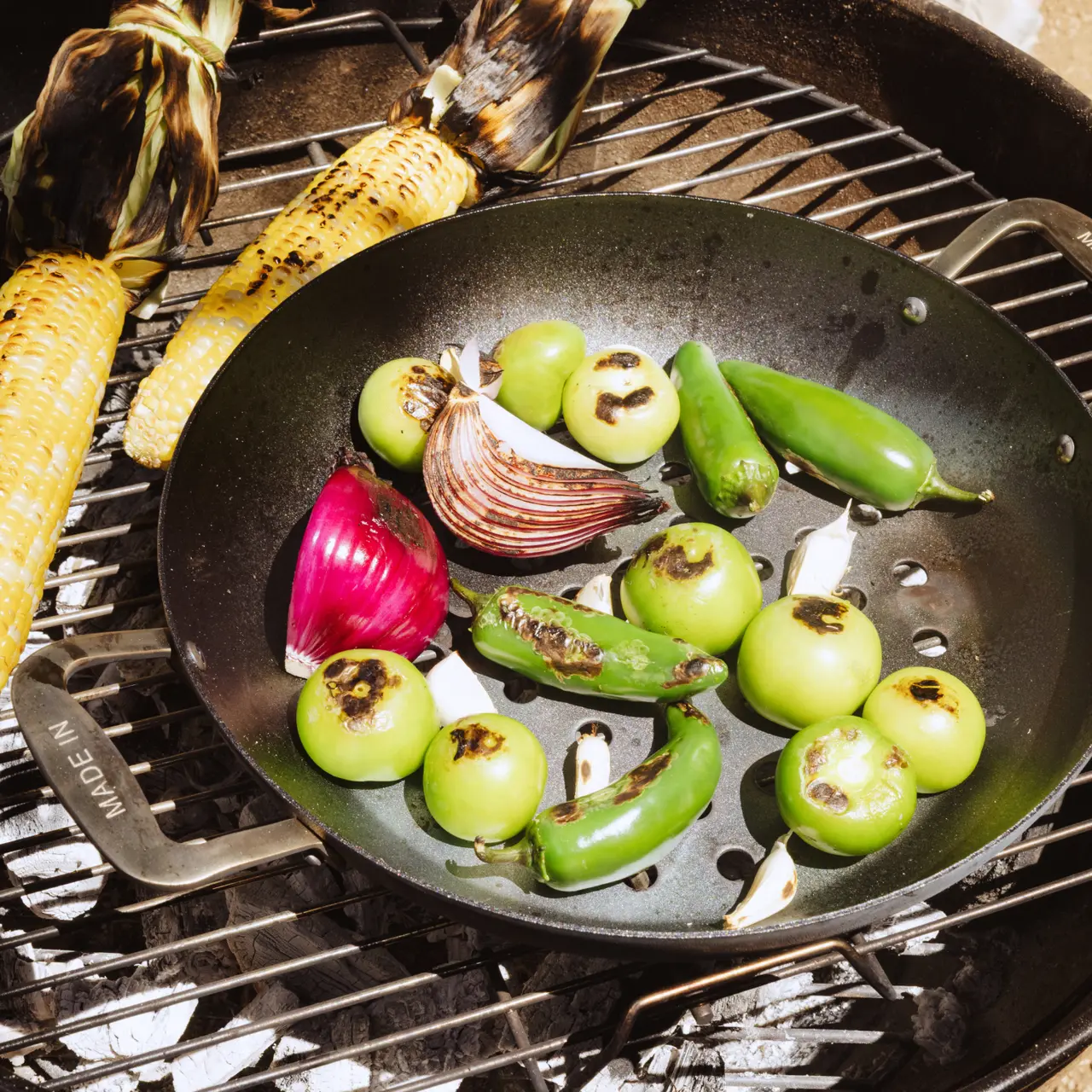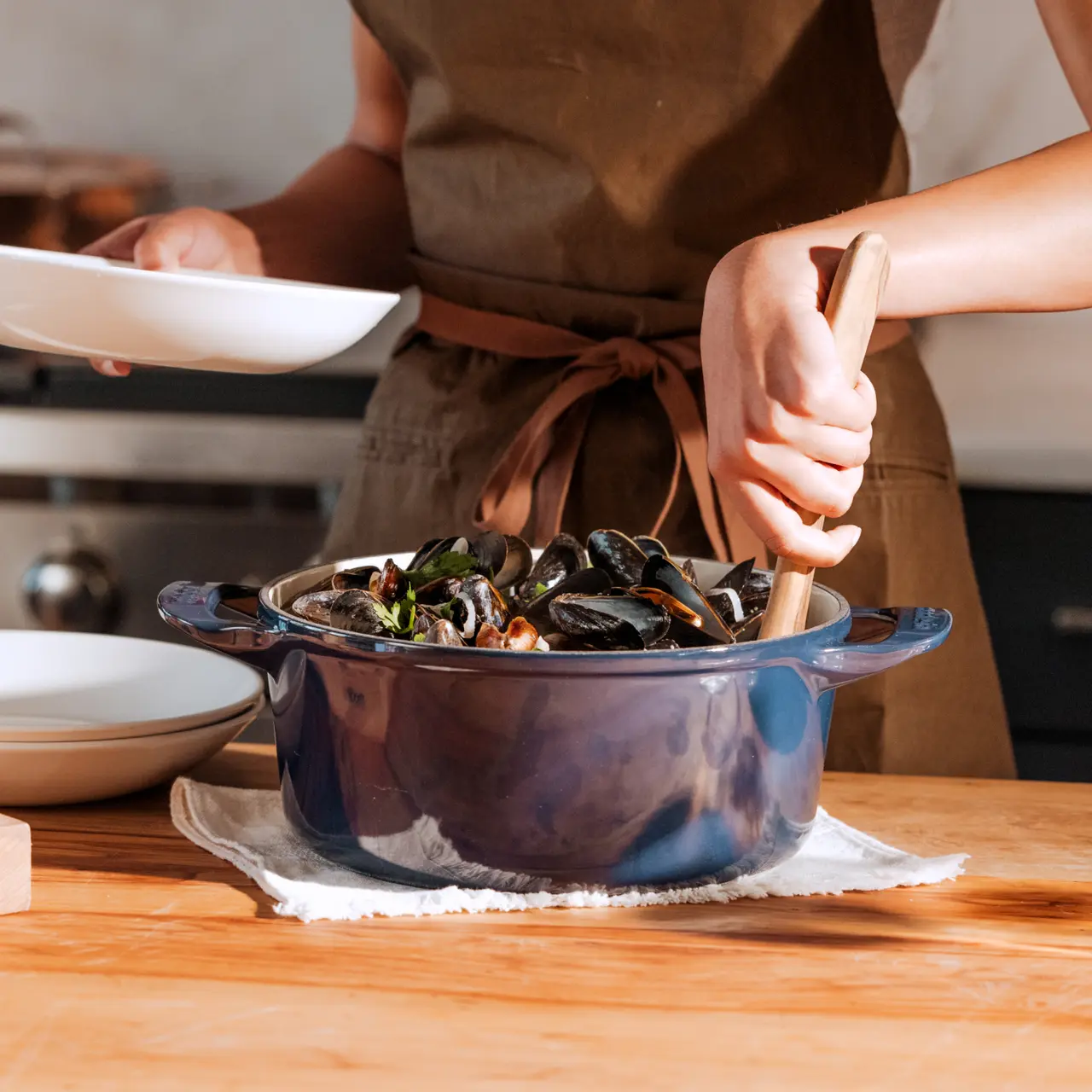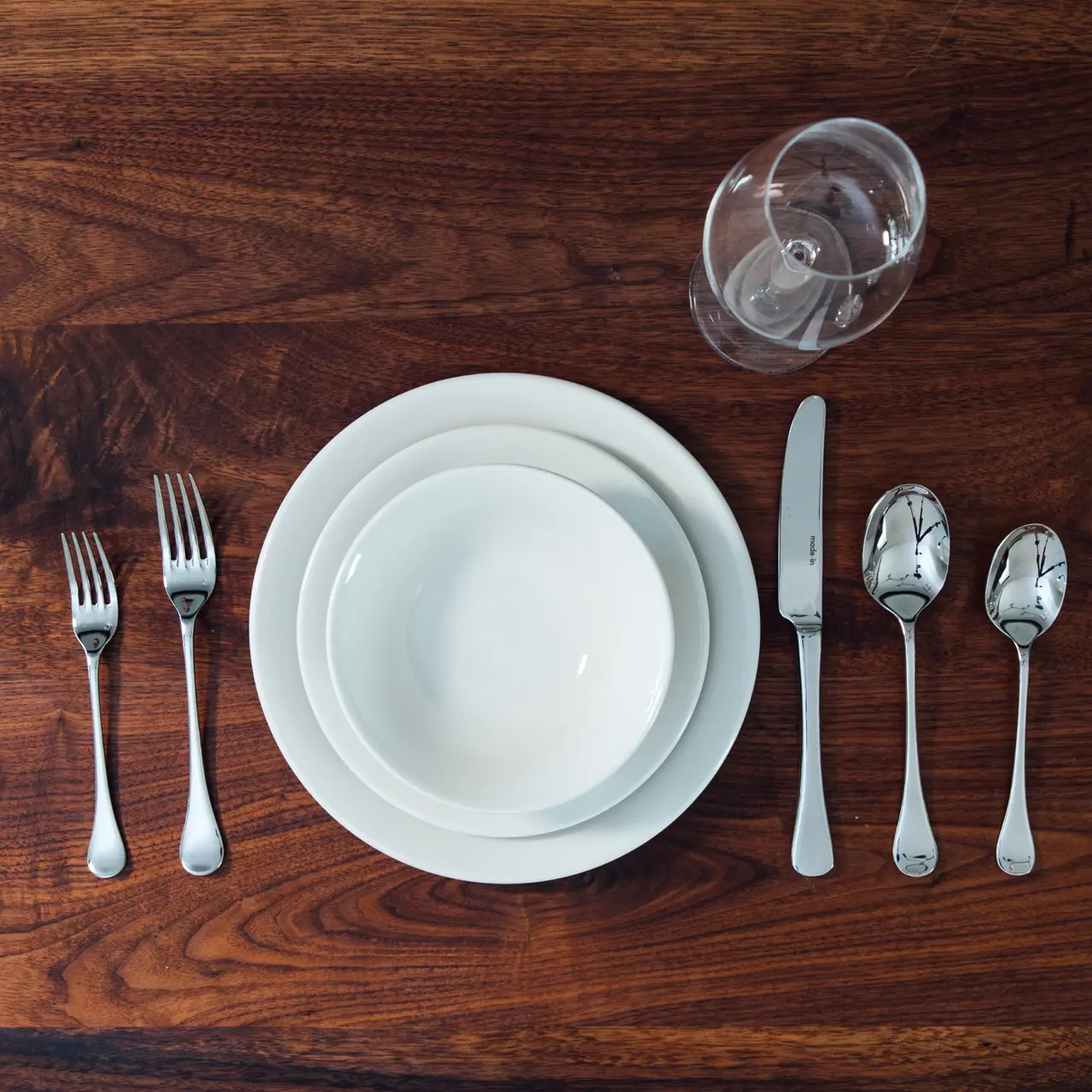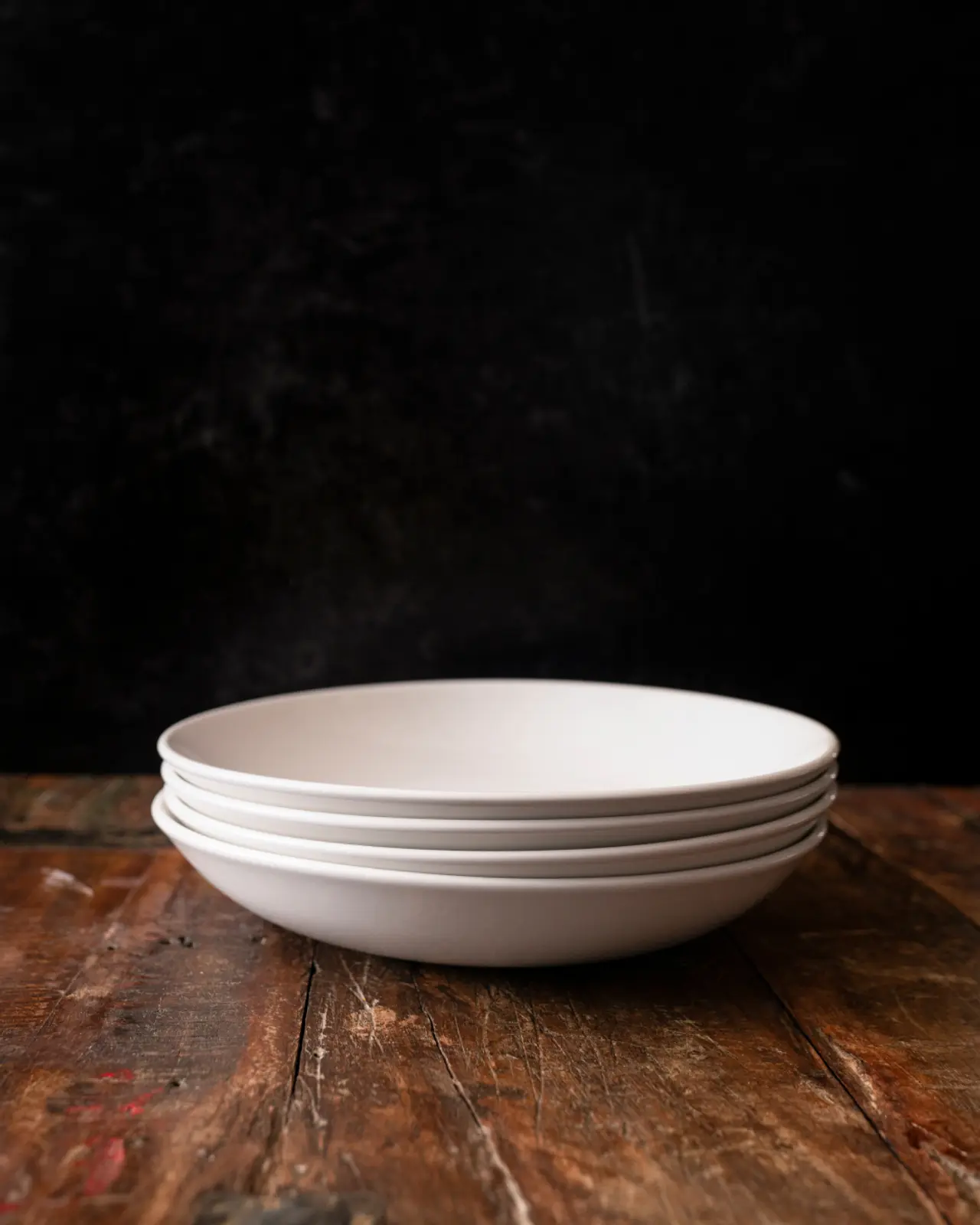Vegetables get a bad rap. Sure, when you blanch or steam them, they can come out gross, but when you know how to cook them properly, there is nothing more delicious.
One of our favorite ways to cook vegetables is to roast them. But if you’ve ever roasted veggies you know you might run into some problems: uneven cooking and bland flavor to name a few.
To make sure our roasted veggies are perfect to start off the new year, we asked our friend, Chef Travis Swikard of Callie in San Diego, how he roasts vegetables to perfection night after night.
Evenly Cut Your Vegetables
The first step to roasting delicious vegetables has nothing to do with roasting whatsoever. Chef Swikard says the most important thing to do is cut your vegetables properly. “Your knife cuts are extremely important as this will ensure your vegetables will cook evenly.”
Whether you’re slicing carrots, brussels sprouts, broccoli, or parsnips, you want each piece of vegetable to be approximately the same shape and size, so that you don’t end up with contrasting textures when they cook. For brussels sprouts, remove the knob on the end, and slice them in half. For carrots, peel them and then cut them into even-sized chunks.
Make an Oil Paste
When adding spices, it’s important to make sure they go on your veggies evenly. After all, you don’t want them to all stick to one tiny cube of squash and have the rest go unseasoned.
To evenly disperse spices, Chef Swikard recommends making what he calls an “oil paste.” Using extra virgin olive oil, add your spices such as Curry Powder or a Mediterranean Spice Blend (Chef Swikard’s favorite is from La Boîte), and stir the two together until a homogenous mixture is formed.
Then, toss your veggies in a bowl to evenly coat each piece. The spices will add flavor to your vegetables and the oil helps ensure your veggies get an even browning in the oven.
Get the Temperature Right
The temperature you cook your vegetables at depends on the vegetable itself. The goal is to make sure that your vegetables are cooked throughout while the outside is nice and caramelized. It’s this harmonious balance that is difficult to master.
“When you roast vegetables, you are evaporating the water from them,” Chef Swikard says. “Once there is no more water left, the Maillard reaction starts to happen, and your vegetables start to caramelize.”
For some vegetables, such as carrots, parsnips, rutabaga, and turnips, this will take place at 375F, and with a Roasting Pan’s high walls, everything will be evenly cooked. “I use Made In’s Roasting Pan quite a bit,” says Swikard, “it’s perfect for smaller roasts.”
However, for vegetables like brussels sprouts and cabbage, Chef Swikard starts them off at 425, which he calls an “oven blanch.” This quickly gets rid of the moisture in the vegetables, allowing them to caramelize quicker. Chef Swikard will then lower the temperature once they start browning.
He can tell when they’re done once they have a nice color and can be pierced with a cake tester. “Just make sure they’re not too easily pierceable. Then, they’re overdone,” notes Swikard.
Dress Your Roasted Vegetables
Yes, even roasted vegetables need a kick sometimes. And Chef Swikard likes to spruce them up by dressing them with a sauce, whether it’s plain yogurt with grated garlic, the zest and juice of a lemon, and some herbs, or just a simple tahini sauce.
And make sure to save any leftover dressing. “What I love to do is to make a salad of cold roasted vegetables, add it to raw kale, and dress it with the tahini dressing,” he says. It’s a great way to use leftovers, that is, if you have any.
